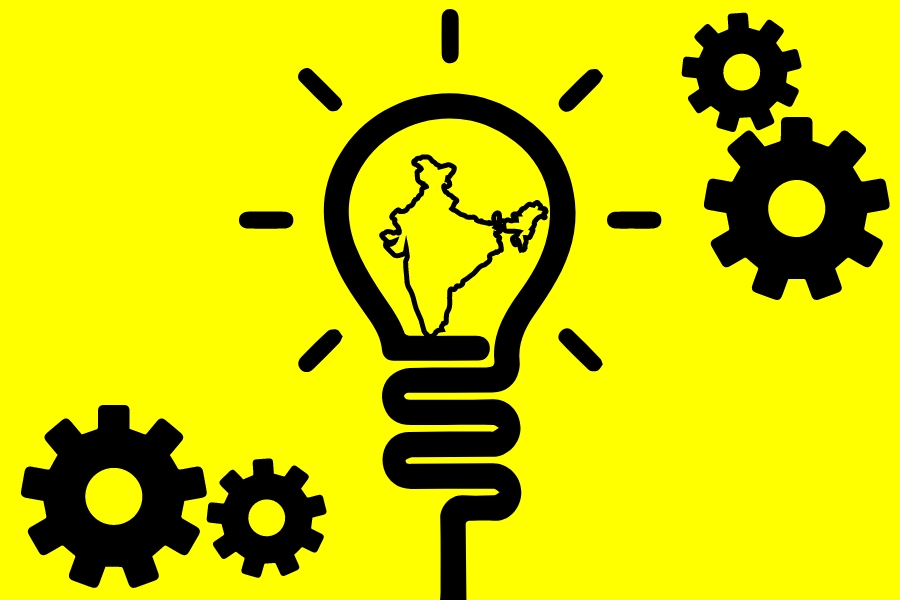The next decade could see many Indian innovative companies emerge
C S Murali, Chairman, Entrepreneurship Cell, Society for Innovation and Development, IISc Bangalore, discusses how the institute’s STEM incubation cell handholds startups towards successful commercialisation of their innovations. He is optimistic that with the improvement in business climate and growing domestic market, India’s innovation ecosystem is set for better days ahead.

IBT: What is the core vision behind the STEM incubation cell and what has it actually achieved so far towards promoting deep science entrepreneurship?
C S Murali: Indian Institute of Science is a 115-year-old organisation of higher learning and it is primarily a research-driven institution. In fact, 80% of students are either pursuing PhD or MS via research and the rest are doing undergrad and grad degrees. The second unique thing about IISC is that its faculty is across all disciplines, both in pure sciences such as biology, chemistry, physics and so on, as well as engineering disciplines. We have close to 500 faculty members. IISC’s focus has always been to do research in these disciplines and therefore, faculty used to focus on publications in top journals, conferences and so on.
Some of the patents that are filed by IISC get licensed by large companies to make useful products out of them. But only a small percentage of patents are actually of use and interest to companies. About 20 years ago, Strand Life Sciences started, wherein four IISC faculty members decided to move out of academics and start a company. In today’s time, Strand Life Sciences is one of the leaders in the field of personalised medicine. A few years later, some other faculty members of IISC decided to venture into start-ups.
IISC recognised that while licencing patents is one way of translating research into something useful, start-ups provide another very useful mechanism to translate scientific output into useful production solutions. That led to the birth of the entrepreneurship cell, which has now been renamed as the STEM cell. At IISC, we focus only on product ideas by start-ups, which are based on science and technology.
There are all kinds of start-ups that exist, and many of them have been successful. Not all of them need to be based on new scientific ideas. On the other hand, we focus on only scientific and technology-related start-ups, because we want to leverage IISC’s intellectual property. Here we are not only talking about patents, but also the knowledge of faculty.
The other key thing is that it is open to all entrepreneurs who have science-based ideas. If we think it is the right thing to do, we would take him through a process and then support him from a technical as well as a commercial point of view. We then incubate them, which means we give them space, mentoring and a small amount of seed capital. Further, we connect them to partners that are required to make the company successful, from investors to potential customers and so on. Today, we have a little over 20 companies on campus, and probably in the last 8-10 years, we have incubated about 40 such start-ups.
IBT: What is the universe of potential start-ups that would approach you in this regard, and how do you finalise on the ones you will support, as 20 looks to be quite a small number?
C S Murali: Yes, it is but as I said, we started this effort earnestly only about five to six years ago. Before that, there were a few sprinklings of companies, but our target now is to incubate 10 new companies every year. Ten may seem like a small number, but given that these are truly science and technology-based companies, they need at least three to five years to get a product out into the market. Unfortunately, a lot of the media coverage that we get to see is about software companies like mobile apps or at the other extreme, you have Flipkart, Ola, etc.
Obviously, building a new software company takes less time. A software company can launch a product in the market within 12 to 18 months. In fact, it can fail or succeed in 12-18 months. Whereas, if you’re building a company with hardware underneath it, in addition to software, it takes time to make the hardware.
Let me give you an example. We have a few companies, which make medical devices. For instance, there is one company that made a product, which is a unique way of assisting in detecting and treating breast cancer. Now, this is a device based on a technology called magnetic nanoparticles. So instead of a dye or radioisotope, which is the current method being used, it injects a fluid, which contains magnetic nanoparticles. Then there is a handheld device, which is held over the body to detect where the nearest lymph node is, from where the biopsy can be done.
Now clearly, this will take a few years. With very innovative products using new technologies, even the ability to produce a few prototypes that can be tested takes years. Unfortunately, they have to go outside India to procure components and materials, which is not only expensive, but consumes time. Therefore, building a start-up based on a hardware has a very long gestation period and needs lots of money and patience.
IBT: Can you talk about some specific case studies in this regard, which have been successful and what process was followed from the innovation to the commercialization stage?
S. Murali: That’s a very important aspect, especially because we are in a research-led institution. For a start-up to be successful, it has to be commercially successful. So, in other words, without getting a lot of recognition and a pat on the back, and with nobody willing to buy, it is of no use.
That means there is something wrong. Either the product was not required, or it was too expensive, or whatever the reason may be. So, it’s very important to evaluate it both from the technology point of view & the market point of view. Evaluating from a technical perspective is relatively easy, because we have access to a lot of IISC faculty as well as others. So, if it passes that test, we set up a committee or a review team with industry experts from that domain, who bring in their market knowledge and practical experience.
So, only if the idea passes that test, we decide to incubate them. In other words, you want to ensure that while the idea is still in the research stage and not yet proven, it must at least be proven in the lab before we can say yes. That’s a very important step.
To give you an idea, there was another company that came to us, wanting to build a medical device. It sounded very interesting, but we realised that it was not yet proven. So, the faculty worked with them for almost one year, before they could put together a business plan. Of course, this is one extreme scenario, but typically, it takes us about two to three months to completely evaluate the idea and say ‘yes’ to incubation.
IBT: When you say innovator entrepreneur, if we call it a category, are there any specific personality traits or motivations, which you feel, can identify a good person who would be successful in this area?
S. Murali: I want to distinguish between truly deep-science and deep tech start-ups versus others. As you would expect, the entrepreneurial team needs to have knowledge of the domain in which they want to operate, be it biology, chemistry, software or AI. A large number of the entrepreneurs who are doing start-ups and are incubated by us are actually PhDs. Some of them are pursuing their PhD research work and transferring it into a useful product. Some others have actually worked elsewhere, come back and decided that they will do a start-up.
Due to the focus we have, you will find that most entrepreneurs are scientists and engineers and their prior experience, and personality is also essential for success. I come with a business background, even though I studied computer science and similarly, my colleagues also have worked in the industry. So, we ensure that the start-ups never lose sight of the market because ultimately, that is where success can be demonstrated. These are some of the main traits.
As almost everyone knows, a start-up is a marathon and not a sprint. So, they need to have patience and commitment and hard work to really stay the course. While the idea may be good at the beginning, it is possible that some loopholes may arise as we progress, along with competition. Sometimes, it is necessary to make a course correction, even after you’ve made some progress.
In other words, the flexibility and the commitment to pursue your idea are very important. Startup founders we support bring in a lot of technology knowledge, and they need to augment it with developing business knowledge.
IBT: What is your view of the general innovation landscape in India and how does it fare with respect to its peers? Why do you think the ecosystem is unable to perform commensurate with the potential?
S. Murali: There are probably several reasons why so far, we have not seen companies originating from India which have become global giants. But let me talk specifically from a start-up’s perspective. In fact, I used to be a venture capitalist 20 years and so at that time, the start-up ecosystem was barely emerging. There were just about a handful of venture capitalists and this was focused primarily on software because that was the more dominating domain at that time. So, most of the start-ups were actually software start-ups like Infosys, for example.
The entrepreneur is obviously at the centre of the start-up ecosystem, but you need angel investors, VCs, government policies and several other things to be successful. The business climate in India, which has been progressively getting better in terms of ease of doing business, was one factor. If you had the same business climate of today 20 years ago; maybe we would have seen global giants emerging out of India by now.
Therefore, I am very optimistic that in the next 10 years, we will see such companies emerging. The second thing is that it’s only in the last 20 years or so, that a large section of India’s population moved to a very high disposable income bracket. For a company to be successful, it is preferable for the market to be close to where you are.
If you want to make something here and sell elsewhere, it is possible but very difficult. This is one of the reasons why you would see that most of the very successful start-ups we hear about are all from the US, because it is not only a hotbed of innovation, but also a huge market. In fact, outside of the US, I would say perhaps Israel is the only country, which has seen many start-ups come up. Even European countries don’t compare to the US.
In the last 20 years, we have seen all of these elements of the ecosystem grow. There are more angel investors, more VCs, a lot more entrepreneurs and government policies are becoming better to support start-ups. So, I think it’s a question of timing. I don’t think we need to feel bad that India has not done well. I think this is the right time for India. And so, I’m certainly hopeful that we will see very good companies emerging in the near future.
IBT: What about the academia-industry interface, because that’s generally understood to be ‘not as good as it should be’? Any suggestions on how India can improve that?
S. Murali: There are two aspects to this game. One is the relevance of science and technology to the industry. I’m not talking just of start-ups, but I’m talking of all industries. We all know that we did not have an open market system until liberalisation started. Almost all products of relevance had to be imported. There was an idea that only imported products mean good quality, whereas if it’s domestically made, it is of poor quality.
Unfortunately, that probably was true for some time and the reason for that was the business environment in India that did not encourage industries to invest in it. So long as they got the right licences and partnerships, they were able to do well. But very slowly, what we’re beginning to see is that no matter how successful a company is, it needs to remain in the forefront constantly. That means it requires new inputs from science and technology to keep its product differentiated.
I don’t know the numbers myself, but I believe if we compare Indian companies with companies in South Korea, probably 25-30 years ago, they were similar in terms of how much they invested in R&D. And while our R&D expenditure has gone up only a little bit, their expenditure has gone up by five to ten times, because our companies had no incentive to really invest in R&D. And this is what will promote academic-industry interaction.
In other words, if the industry knows that it needs academic input on an ongoing basis, then there will be a stronger collaboration. But I won’t only blame the industry because they were dependent on the operating environment, which existed at that time. But even academicians were very happy pursuing their academic pursuits because, again, if a person is going to be measured on his research, output and publications, that’s what he’s going to focus on.
If you look in the US, a professor even in a top university, whether it is Stanford or Berkeley, is expected to actually bring in funding from the industry. On the other hand, in India, most researchers get their grants only from the government.
I think the environment of what is considered necessary incentivizes people to do the right things. As I said, I don’t know the numbers, but I believe that the R&D spending is an issue. Another thing is to look at total R&D spending, and see what part comes from the government and what part comes from the private industries.
Now, clearly, there are certain areas of research, which will always be funded by the government, for example, (until recently) space. So, it’s only in the last several months, when the Space Policy came up, that a larger number of private players have come into the space market. If you look at the US, you have entrepreneurs like Elon Musk, who have a lot of money and are also very forward looking.
So, I think it is a question of the prevailing environment, both within the country as well as globally, which would incentivize both academicians and industries to collaborate more strongly. We are beginning to see an improvement in that area but for historical reasons that I mentioned, I think in terms of absolute numbers, we are probably way behind many countries.

C S Murali is Chairman of STEM Cell at the Society for Innovation and Development in Indian Institute of Science, Bengaluru. STEM Cell incubates Deep Science-Deep Tech startups and its portfolio covers diverse domains such as space, medical devices, vaccines, semi conductors, AI and others.
Prior to IISc, Murali was Chief of Corporate Affairs at Cognizant where he led many corporate initiatives. He was partner at Connect Capital — an early stage venture capital firm where his responsibilities included deal evaluation and portfolio management. He has also mentored many start-ups in strategy, fund raising and business development. His other positions include President and CEO of LEC India Software, COO of Digital Globalsoft (now a HP company) and General Manager at IBM Global services. Murali started his career with TCS where he spent 15 years in various technical, sales and management positions.
Murali obtained his BE in Electrical Engineering and ME in Computer Science, both from the Indian Institute of Science.













Leave a comment